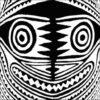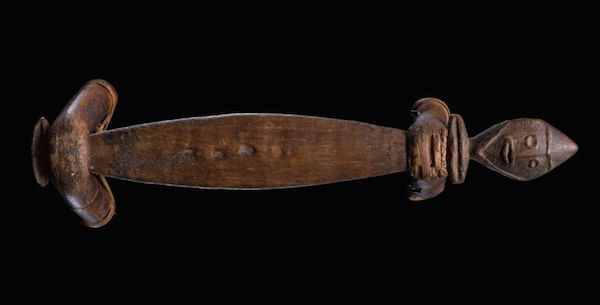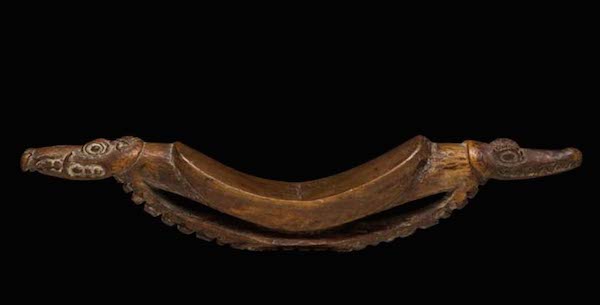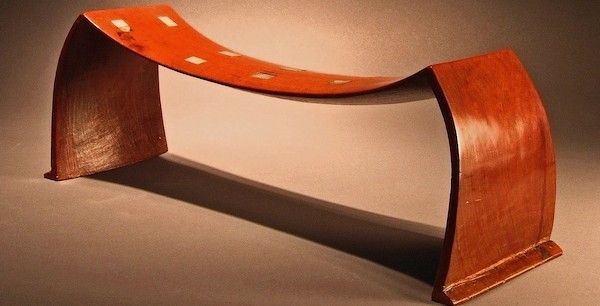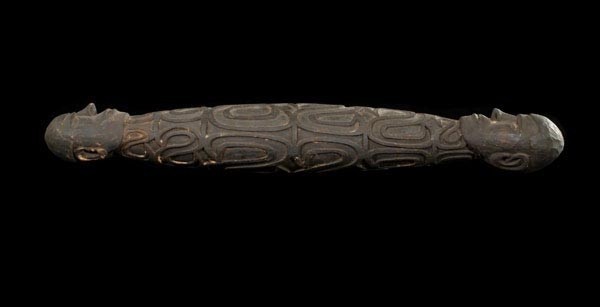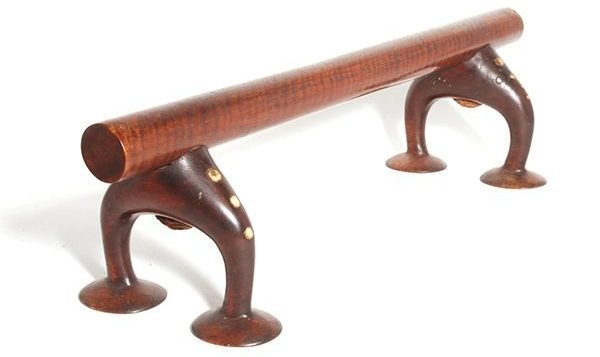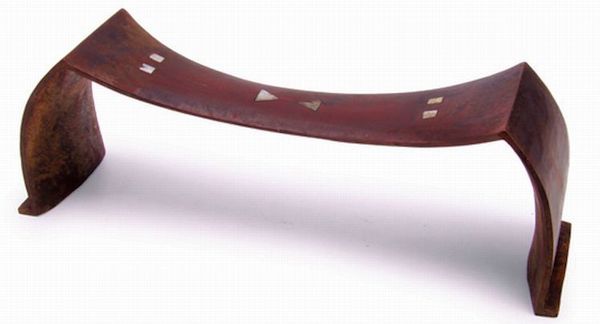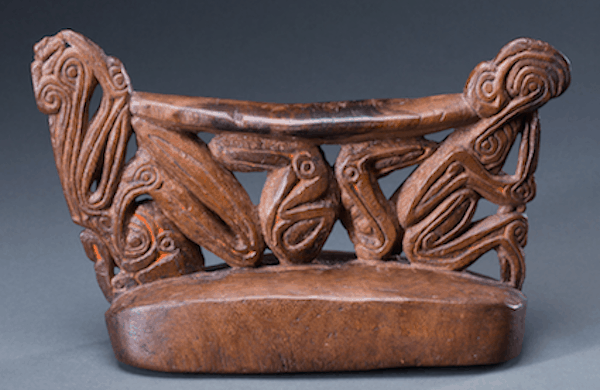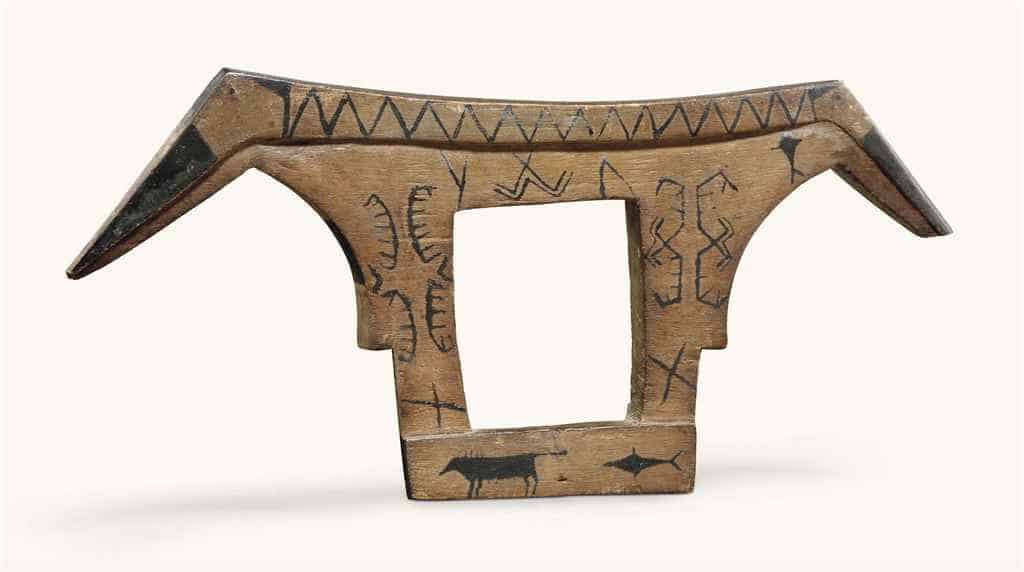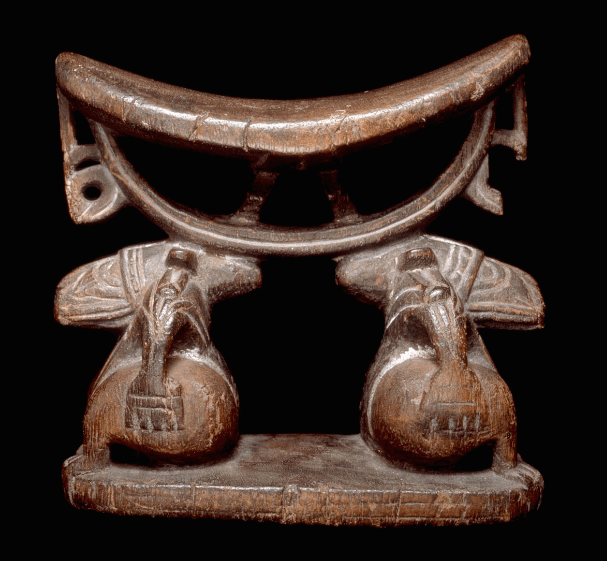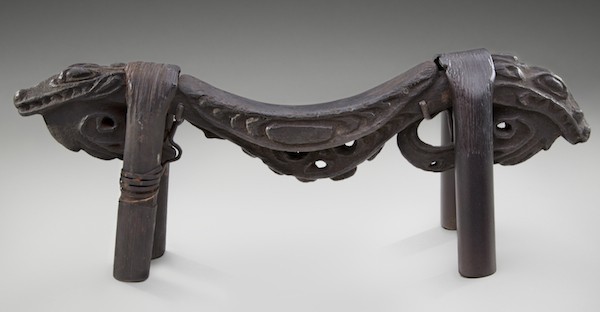Wooden headrests from the Pacific Islands
This article looks at the various different types of Wooden headrests from the Pacific Islands. It has lots of images to help readers identify where a Wooden headrest comes from and what it is worth. Some Wooden headrests are quite beautiful in their own right and are a collectible form of old tribal art.
I buy Wooden headrests from the South Pacific Islands so if you have one to sell I would love to see it. If you want to know what your Wooden headrest is worth please feel free to send me a Jpeg. I will give you my opinion.
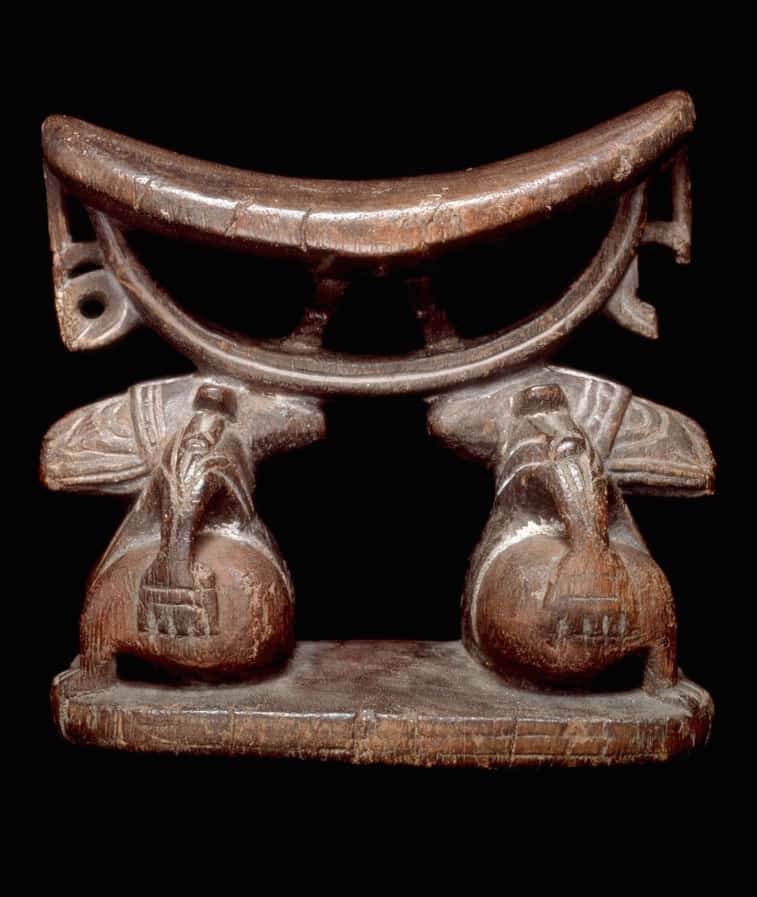
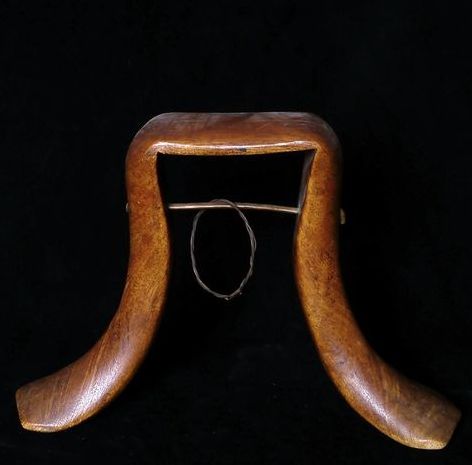
Tribal Headrests general information
Headrests have been around since before the time of the Pharos and are on almost all continents across the globe. Headrests are from Africa the Middle East, Ancient China and right through the Pacific islands. It is not possible to cover all tribal headrests from all cultures or even the variations within a single culture. This article aims to give the reader some idea of the scope of headrests found in the Pacific.
Wooden headrests vary widely in their function as well as design. Some were to keep elaborate and ochred hair does in pristine condition. Others were to protect the Mana or life energy. Some were skulls used to communicate with ancestors while dreaming and others covered in protective totems.
Wooden headrests by Area
Wooden Headrest Sepik River
Headrests from the Sepik are often made up a wooden body and cane legs. They tend to be elaborately carved with mask-like faces. Some headrests from this area are from a single block of wood but are still elaborately carved.
The majority of headrests from New Guinea come from the Sepik.
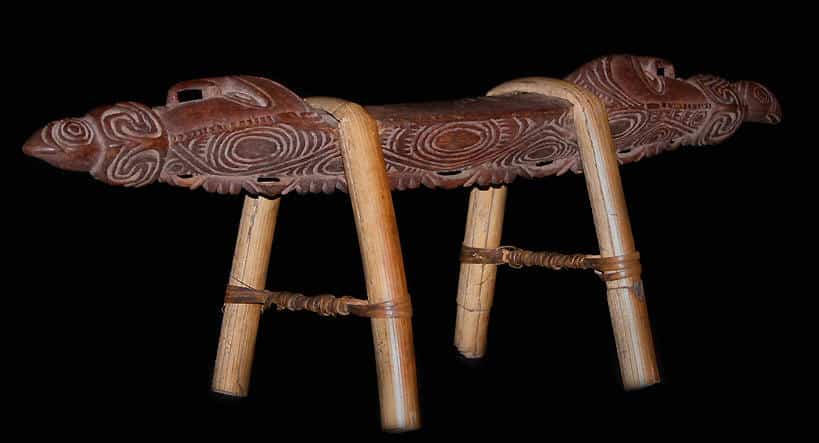

Wooden headrest Rennel Island
Rennel island Headrests are easily recognized as they tend to have only three legs. Two of the legs attached either by cane or by bush fibre rope
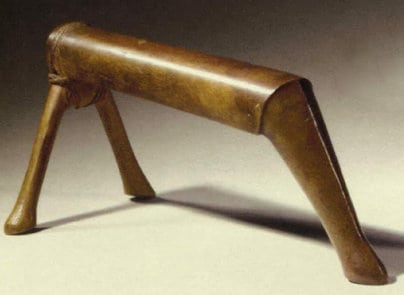
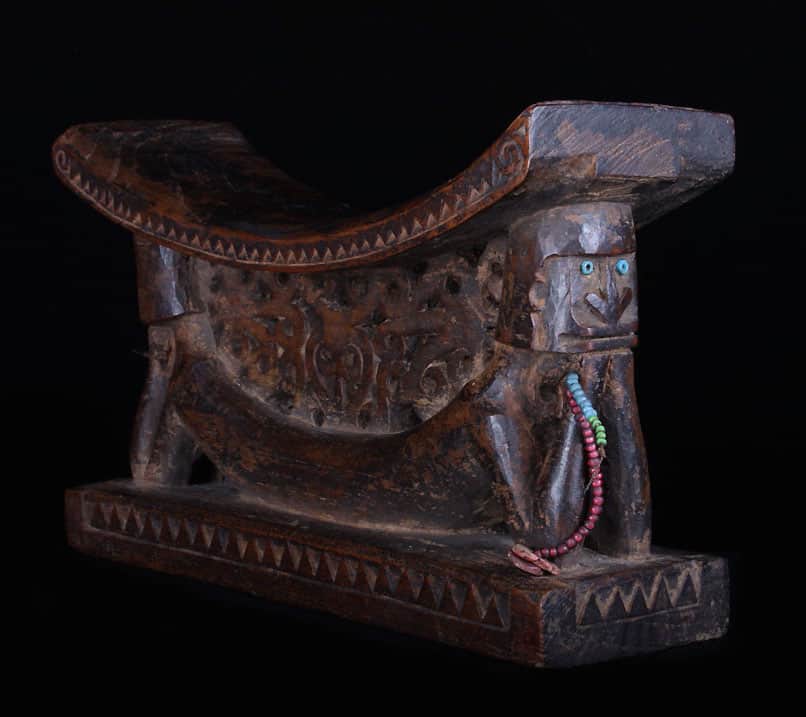
Wooden Headrest Korwar
These headrests come from Western New Guinea or Irian Jaya. They often have figures at both end and floral designs in the middle.
The figures at the ends have a distinctive arrow-shaped nose.
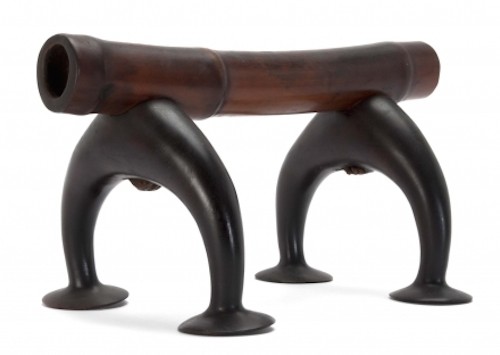
Fijian Headrests
Fijian Headrests are probably amongst the most refined and elegant headrests. They come in several different styles but all tend to have an almost Japanese aesthetic.
The most valuable and collectible Fijian headrest have inlays of whale tooth ivory.
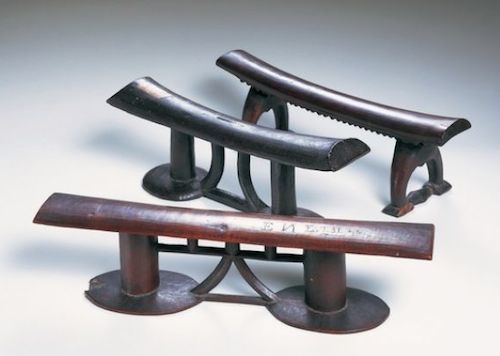
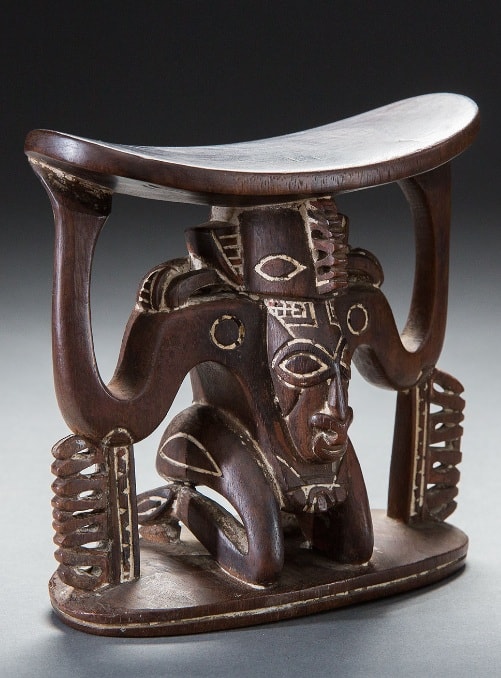
Wooden headrest Huon Gulf
Headrests from the Huon Gulf also tend to have figures. The figures tend to be Cubistic.
Most have two figures at either end but some have a single powerful central figure.
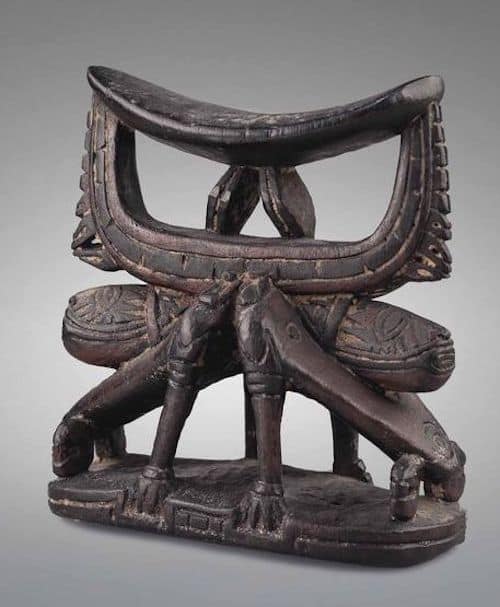
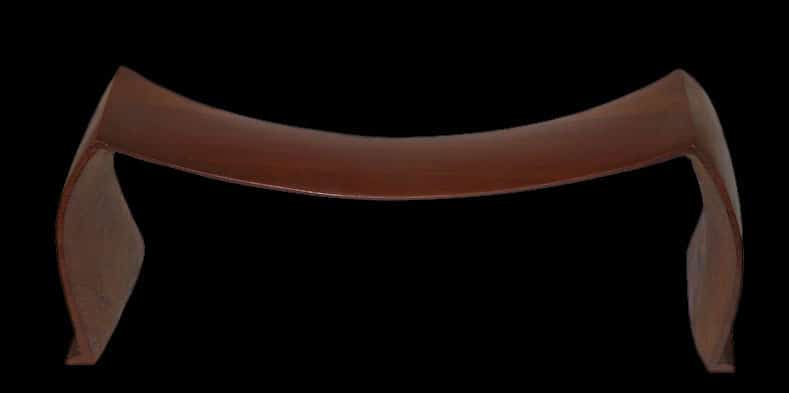
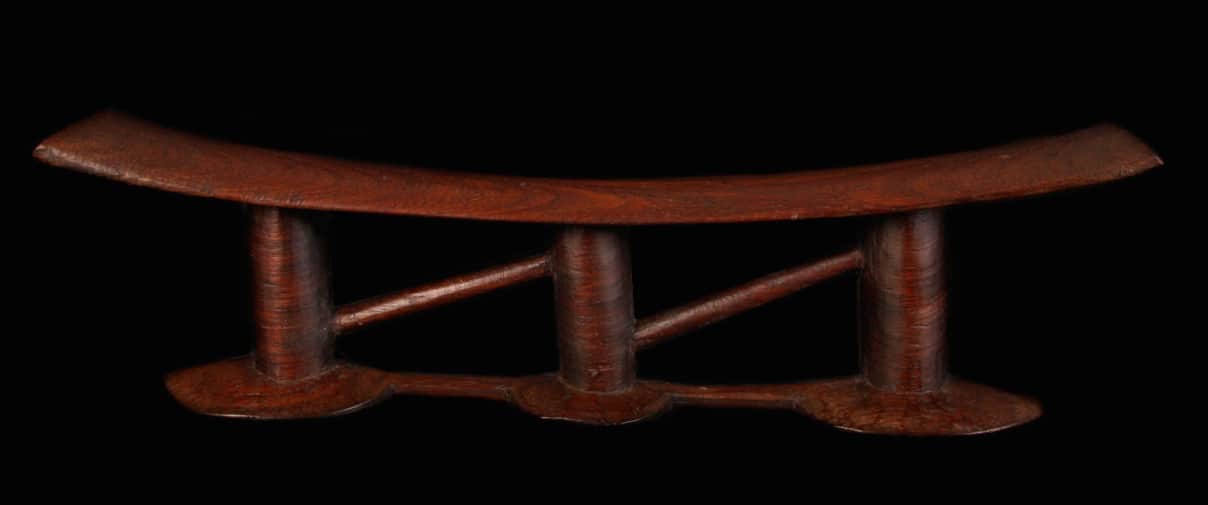
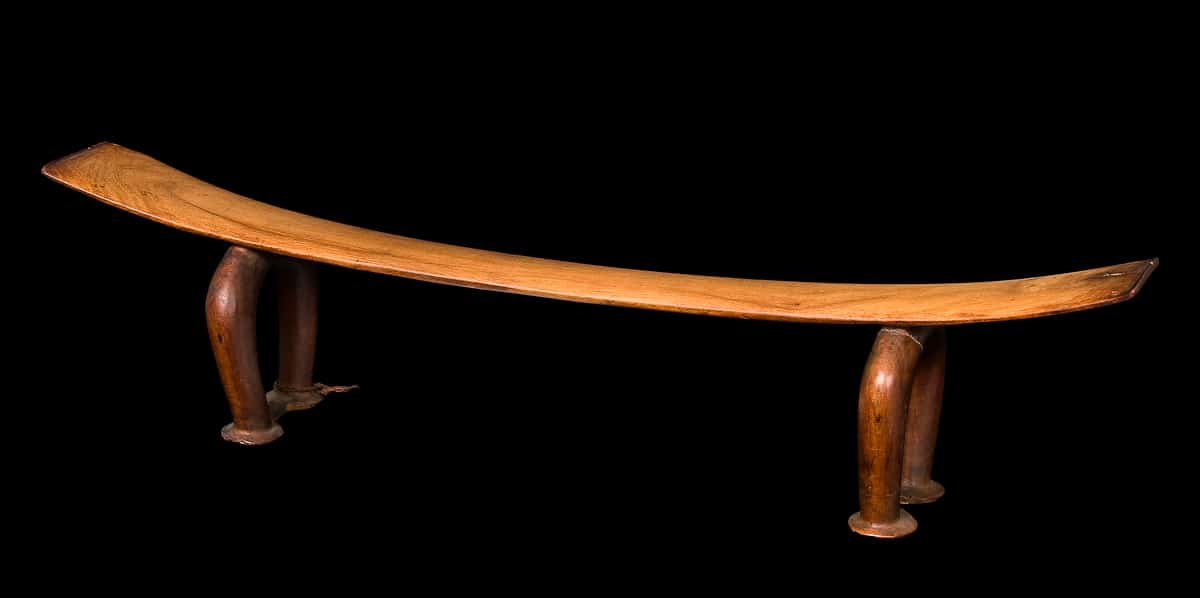
Tongan Headrests
Tongan headrests are very similar to Fijian headrests. Fijian chiefs often commissioned Tongan craftsmen to make headrests and war clubs. They are normally very well finished and refined.
They are highly collectible and some are collected for their sculptural form more than ethnographic curiosity.
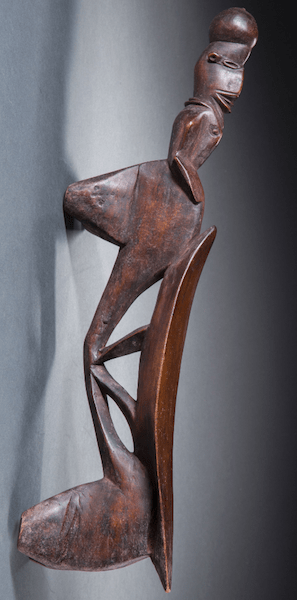
Markham Valley Headrests
These headrests are very rare and come from Papua New Guinea near Lae. Most often they are made from a natural piece of timber forming the headrest with a face on one end.
They are the most sort after and collectible headrest from Papua New Guinea.
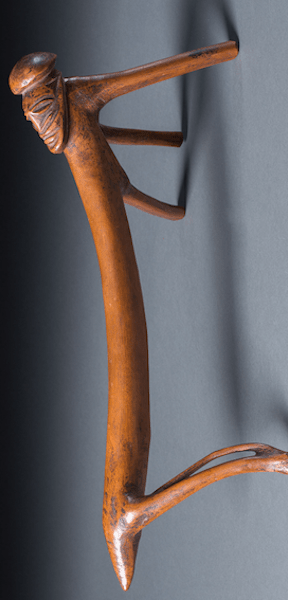
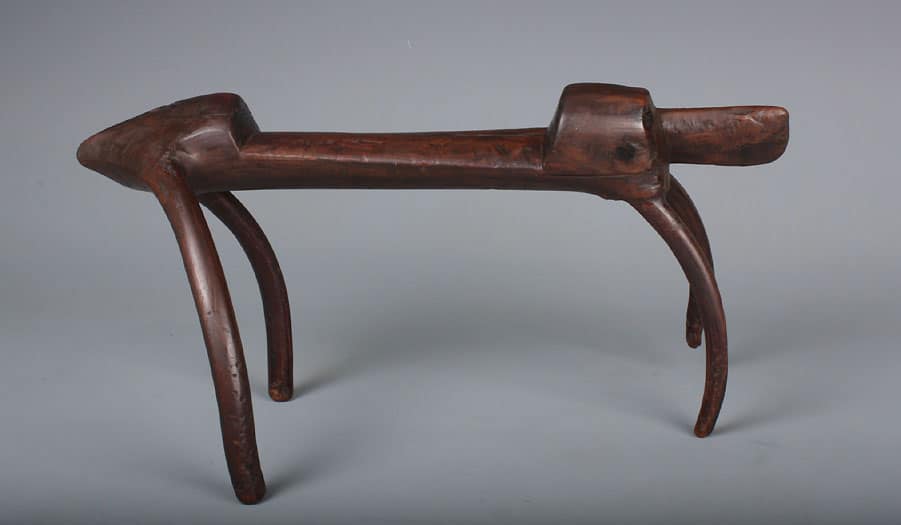
PNG Highlands headrests
Tribal headrests from the Highlands of Papua New Guinea tend to be minimally carved and functional.
Those with unusual shapes or intrinsic beauty are more collectable
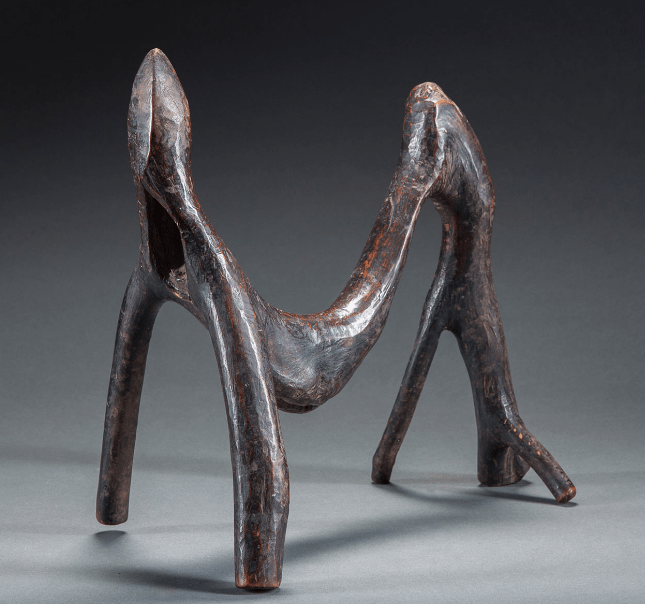
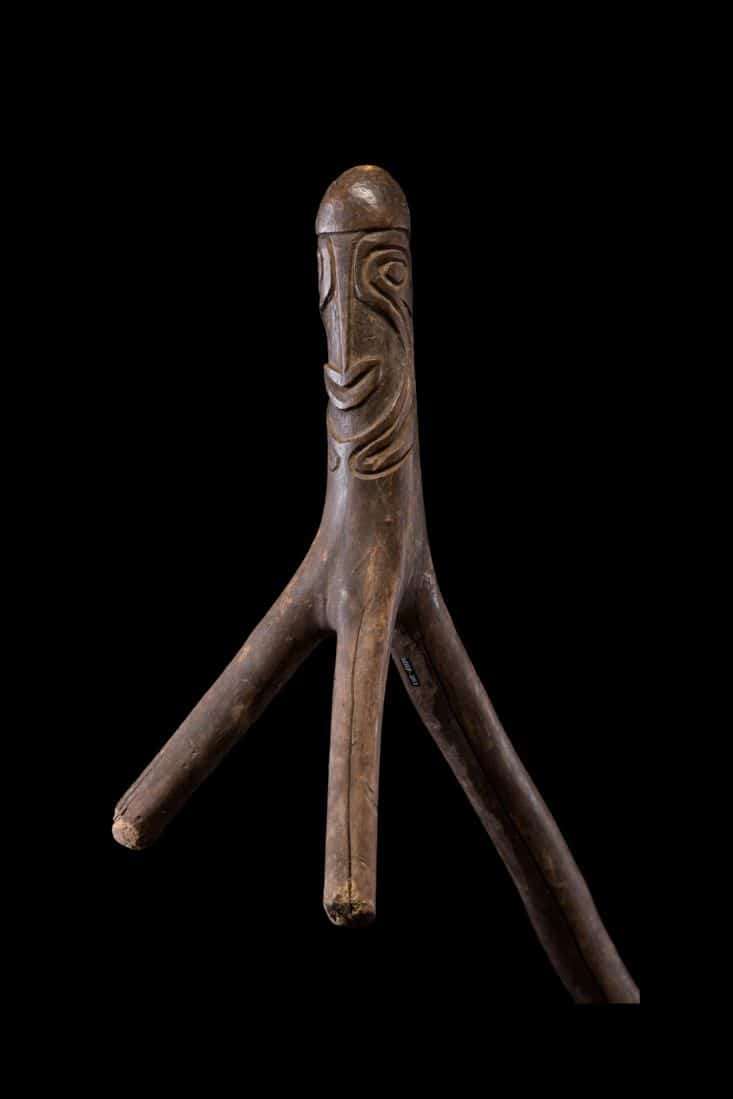
Papuan Gulf Headrests
Headrests from the Papuan Gulf are rare. They are often anthropomorphic and very collectible.
Collingwood Bay headrest
Headrests from Collingwood Bay have the central portion carved with chevron patterns. They are very distinctive
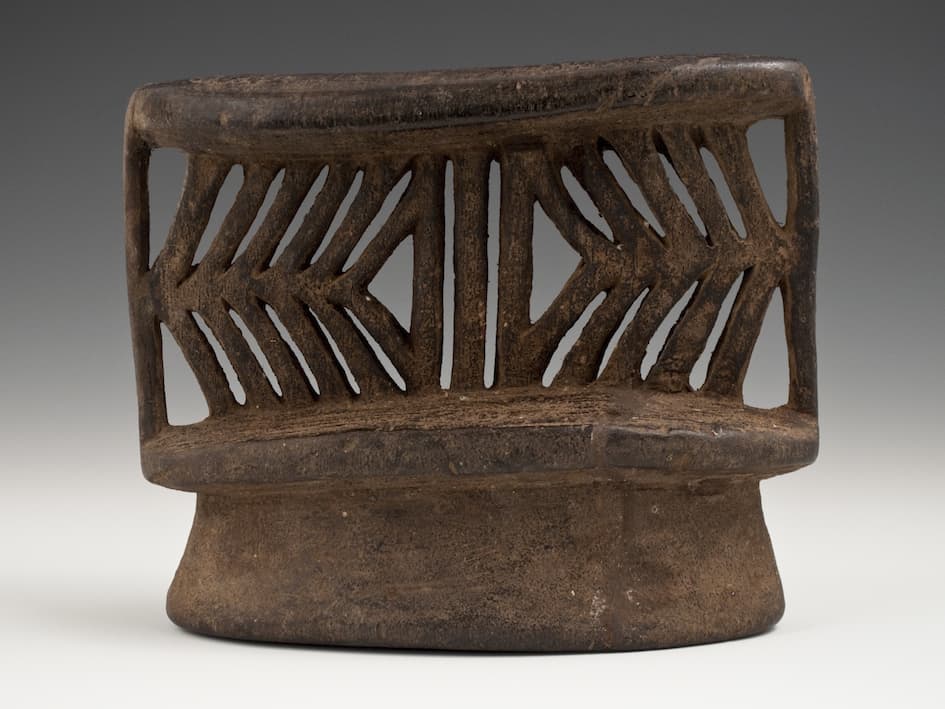
Wooden Headrests
I hope you can appreciate the vast variety of Wooden headrests from the Pacific. As Art, they can be extremely expressive and come in a vast variety of sizes forms and shapes. There are many more varieties of Headrest than can be shown in any one article. They are a wonderful form of south pacific art. If you want to know more about headrests I can recommend reading Oceanic Headrests by Meyer. If you want to know about African headrest you could read African dream machines.
Other Articles in this series include Vanuatu War clubs Tribal Drums and Tribal Bowls.
All images in this article are for educational purposes only.
This site may contain copyrighted material the use of which was not specified by the copyright owner.
